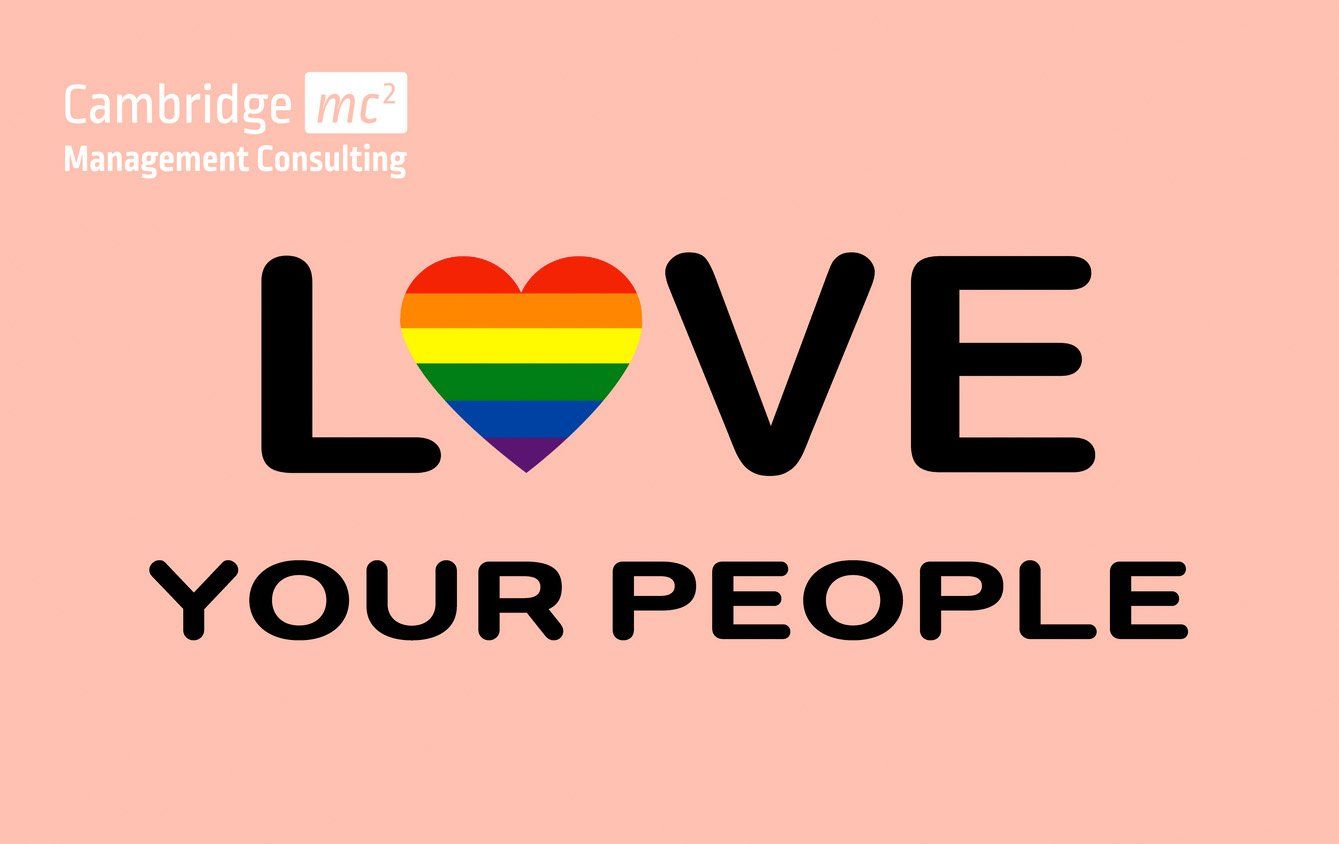Celebrating Pride Month: The Power of Inclusive Workplaces
What Businesses can Learn from Pride Month
In June our attention turns to Pride month. Marking the anniversary of the 1969 Stonewall Uprising, a week of protests in New York against police harassment of the gay community, Pride month sees a host of parades, concerts and festivals worldwide to celebrate the LGBTQ+ community.
Pride both celebrates how far LGBTQ+ rights have come since 1969 and raises awareness of the issues the community—unfortunately—still faces some 50 years on. And so, particularly during Pride month, it is vital that we reflect on these issues in the workplace. We must attempt to prevent rather than simply mitigate the issues that the LGBTQ+ community face in the workplace, learning to 'walk the walk' rather than merely 'talk the talk' around Pride-related initiatives. We must ensure that we have the correct culture in place to deliver the equality, diversity and inclusivity that our employees, clients and partners both demand and deserve.
“ Diversity happens, inclusion is a choice ”
Harjeet Khanduja, How Leaders Decide: Tackling Biases and Risks in Decision Making
Equality concerns fair treatment of all individuals, while diversity concerns the mix of people from different backgrounds. But what we must really ensure we deliver on as businesses is inclusivity, whereby we not only have this mix of people, but they all feel comfortable being themselves at work, feel valued, and feel included.
Fostering Inclusivity in the Workplace
Realising workplace inclusivity requires changes at both the macro and micro level. It requires businesses to ask difficult questions and to engage in honest conversations as a team. But while inclusivity in the workplace cannot be achieved overnight, businesses shouldn't feel daunted and must not be discouraged from implementing the necessary changes. And there is so much that can positively be done to generate a more inclusive workplace.
Inclusion
The first and most important step to creating inclusivity is education. The moment we decide to challenge our unconscious biases and educate ourselves on others’ perspectives is the moment we decide to expand our understanding of the world and the people around us. Listening to others’ fears and issues gains their trust, allowing them to feel respected and valued in the workplace. Without understanding other cultures, traditions and religions, we could never begin to bring aspects of these into the workplace.
D&I initiatives
Many businesses suffer when it comes to inclusivity because they lack a dedicated Diversity & Inclusivity (D&I) team. Having a dedicated team in place is pivotal to the success of inclusivity initiatives across various levels. At a very basic level, employees should be educated on how to avoid heteronormative, homophobic, and racist language in the workplace; instead using respectful and LGBTQ+ inclusive language.
Among other initiatives, businesses can ensure their workplace is accessible with lifts, ramps and disabled parking. They can ensure they have mental health first aiders on-site and, if physical space allows, consider implementing sensory, prayer and meditation rooms. Businesses can ensure that the company calendar celebrates a wide variety of traditional holidays such as Ramadan and Diwali, and employees can be invited to add important cultural or religious events to this calendar so they can be better represented business-wide.
Your D&I department is unlikely to succeed alone, and so initiatives they set out should empower employees at all levels to drive change across your organisation. These can range from encouraging the return of employee feedback to management (crucially these must then be assessed by the D&I team) to ensuring D&I and HR policies are easily accessible so employees don’t have to jump through hoops to acknowledge them.
Flexibility
One silver lining remote and hybrid working, with flexible working arrangements now here to stay. Such flexibility is key for inclusivity. More able to recruit employees with physical or mental health disabilities, family care responsibilities, and those catchment area, organisations open themselves up to a more diverse pool of otherwise missed talent.
Inclusive cultures enable staff to work in ways that better suit them, ensuring a healthy work-life balance that allows them to deliver their very best for your business.

The Strength of Workplace Inclusivity
There are a multitude of changes that can be made to make your workplace more inclusive. But there will be cynical voices and those who think these initiatives are a form of pandering to social mores. Your management teams might not want to enforce them. And there is almost certainly going to be a tightening of budgets for anything outside business-critical projects. We must acknowledge that not every business can introduce all of the above measures, nor can they all be made overnight. But every change that is made is a meaningful step towards to a happier, more productive and more innovative workforce. Without a doubt, a commitment to D&I will produce a long-lasting return in investment.
Mental wellbeing
The mental wellbeing of staff should be the ultimate focus of any business, and inclusivity is central to mental wellbeing. The bottom line is that generating a culture of inclusivity, a workplace in which everyone feels welcome and comfortable in their own skin, can help to make employees feel much happier at work.
“ It takes no money to respect the individual ”
Harvey Milk, leading political gay activist of the 1970s
You cannot put a price on mental wellbeing; a lesson we all learned from the pandemic. But a happier workforce will actually cut costs as it leads to better staff retention—inclusivity really is a win-win.
Productivity
Feeling more valued and included, a happier workforce is also a more productive workforce; a finding which is evidenced in studies such as that by Oxford University and BT in 2019. A more diverse team is also a team with a broader range of skills and experiences, which helps to boost productivity through the exchange of ideas. Businesses can gain a competitive edge when novel and more creative ways of thinking are introduced, ignited by a workplace culture in which all employees feel they can contribute equally.
Innovation
Being able to see things from different points of view and tackle problems from different angles is what ultimately drives innovation in any business, and inclusivity is at the heart of making this a reality. Creating a more inclusive workplace, in which employees better understand other and their backgrounds, also opens up more opportunities to build relationships with clients and partners from different cultures and backgrounds. A business that can demonstrate that they champion inclusivity in their workplace, 'walking the walk' and not just 'talking the talk', will be much more attractive to new employees from a diverse range of backgrounds. This helps to generate a very positive cycle of recruiting the best talent—a key driver for innovation.
Conclusion
During Pride month it is time to reflect on how we as businesses can do more to foster an inclusive culture in the workplace. Through education, policy and flexibility we can generate inclusivity in our workplaces and drive our businesses to be happier, more productive and more innovative. Ultimately, Pride is all about self-acceptance and being comfortable in your own skin. As businesses we must be proud of, and include, every single employee, no matter their background. We must bring into the workplace the love, friendship and vibrancy epitomised during this month’s Pride celebrations across the world.
About Us
Cambridge Management Consulting (Cambridge MC) is an international consulting firm that helps companies of all sizes have a better impact on the world. Founded in Cambridge, UK, initially to help the start-up community, Cambridge MC has grown to over 200 consultants working on projects in 25 countries. Our capabilities focus on supporting the private and public sector with their people, process and digital technology challenges.
What makes Cambridge Management Consulting unique is that it doesn’t employ consultants – only senior executives with real industry or government experience and the skills to advise their clients from a place of true credibility. Our team strives to have a highly positive impact on all the organisations they serve. We are confident there is no business or enterprise that we cannot help transform for the better.
Cambridge Management Consulting has offices or legal entities in Cambridge, London, New York, Paris, Dubai, Singapore and Helsinki, with further expansion planned in future.
Find out more about our
people services and
full list of capabilities.
Subscribe to our Newsletter
Blog Subscribe
SHARE CONTENT













